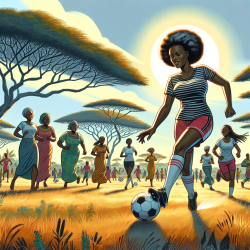The complex interplay between displacement, marital practices, and intimate partner violence (IPV) among Somali refugees in Dollo Ado, Ethiopia, offers significant insights for practitioners working in humanitarian settings. The qualitative study conducted by Sharma et al. (2020) sheds light on how displacement influences these dynamics and provides a foundation for developing targeted interventions.
Key Findings from the Study
The research highlights several key findings regarding changes in marital practices due to displacement:
- Reduction in Child and Forced Marriages: Displacement has led to a perceived decline in child and forced marriages among Somali refugees. This shift is attributed to increased awareness through NGO programs and Ethiopian laws prohibiting child marriage.
- Decreased Polygamy: Economic hardship resulting from displacement has been linked to a decrease in polygamous unions. Many men find it financially challenging to support multiple wives.
- Influence of Education: Access to education for girls has increased within refugee camps, contributing to a delay in marriage age and offering a protective factor against early marriage.
The Role of Practitioners
Practitioners working with displaced populations can leverage these findings to enhance their interventions:
- Promote Education: Safe access to education should be prioritized as it plays a crucial role in delaying marriage age. Programs that encourage educational attainment for girls can have long-term benefits beyond reducing early marriages.
- Aware of Legal Frameworks: Understanding and promoting the enforcement of laws related to marriage age can help shift community norms. Practitioners should work with local authorities to ensure these laws are upheld within refugee settings.
- Cultural Sensitivity: Interventions must be culturally sensitive and context-specific. Engaging community leaders and leveraging existing social structures can aid in the acceptance and effectiveness of programs.
The Need for Further Research
The study underscores the need for continued research into the factors influencing marital practices among displaced populations. Areas for further investigation include:
- The Impact of Economic Interventions: Understanding how economic empowerment programs affect marital practices could provide valuable insights into reducing IPV risks associated with economic dependency.
- Diverse Contexts: Comparative studies across different refugee settings can highlight unique challenges and successful strategies that may be adapted elsewhere.
A Call to Action
This research offers a foundational understanding but also calls for practitioners to engage deeply with affected communities, adapt interventions based on evolving needs, and advocate for policies that protect vulnerable populations. By doing so, we can work towards reducing the prevalence of IPV and improving the well-being of displaced individuals.










